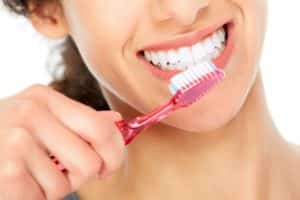 When you were a child your parents may have bought you medium or hard-bristled toothbrushes. Today you may be wondering why dentists recommend soft-bristle brushes instead. Is it because your teeth and gums are older and more sensitive? That definitely may be one reason, but the recommendation is basically a sweeping recommendation, unless otherwise noted. There are several reasons why you should choose a soft-bristled brush over a hard-bristled toothbrush.
When you were a child your parents may have bought you medium or hard-bristled toothbrushes. Today you may be wondering why dentists recommend soft-bristle brushes instead. Is it because your teeth and gums are older and more sensitive? That definitely may be one reason, but the recommendation is basically a sweeping recommendation, unless otherwise noted. There are several reasons why you should choose a soft-bristled brush over a hard-bristled toothbrush.
Once Upon a Time
There was a time when a toothbrush was a toothbrush was a toothbrush. You didn’t have much choice. You went to the store, bought a toothbrush, and that’s what you used. Today there are a variety of toothbrushes to choose from. So many, in fact, that it may be hard to decide. Over the years, research has shown that soft nylon-bristled toothbrushes are the safest and most effective for your teeth and gums. Many of us may think that the harder we brush our teeth the cleaner they will be, but brushing too hard can cause more harm than good. Depending on how hard you brush, the health of your gums, and the strength of your tooth enamel, medium- and hard-bristles could actually damage your teeth by wearing away the enamel, the surface of your root which is not protected by enamel, as well as damage your gums. Additionally, whether you purchase a manual or an electric toothbrush, you should not only choose one with soft-bristles, but make sure the bristles have rounded tips. Rounded bristle tips provide more protection when you brush.
The ADA Seal of Acceptance
The American Dental Association performs rigorous tests on toothbrushes that they approve. Therefore, by choosing a toothbrush with the ADA Seal of Acceptance you can be sure it has undergone rigorous testing for safety and effectiveness. You can also ask your dentist if there is a particular toothbrush that they recommend.

